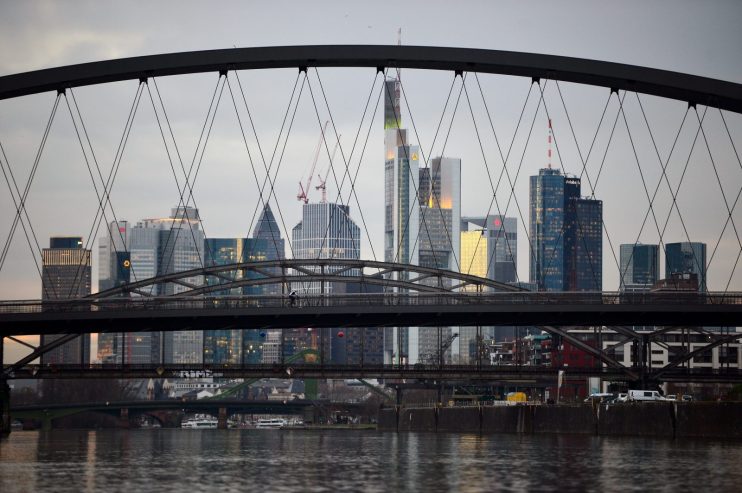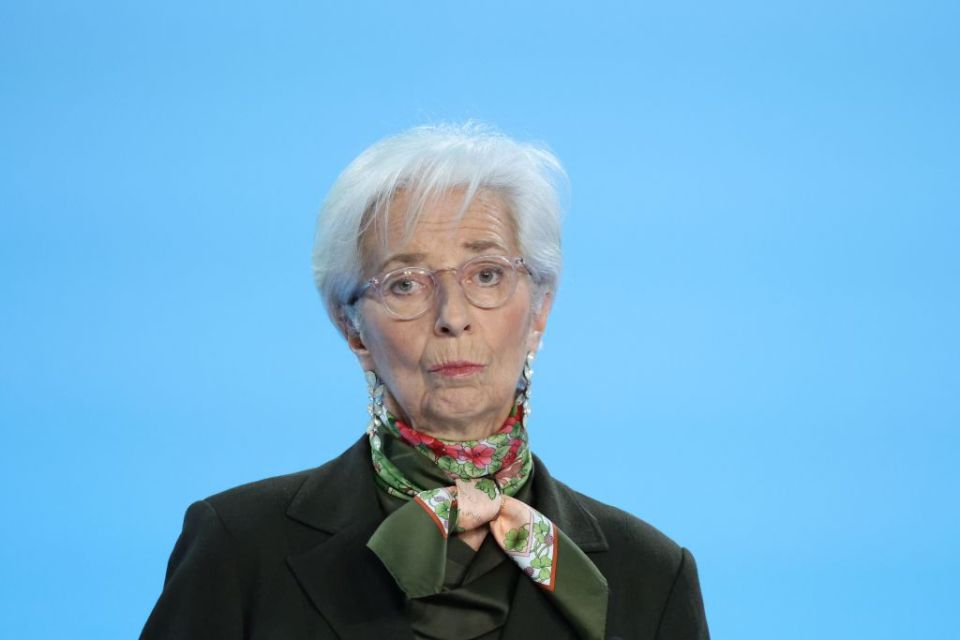Eurozone economy pulls away from recession as inflation slips again to 5.3 per cent

The European economy is outperforming expectations and pulling away from recession as inflation continues to descend, official data out today shows.
Growth across the 20 countries that use the euro hit 0.3 per cent in the three months to June, according to the bloc’s statistics agency Eurostat.
That topped analysts’ expectations of a 0.2 per cent expansion rate and returned the continent to growth after gross domestic product flatlined in the first three months of the year.
Inflation is also dropping across the common currency bloc, down to 5.3 per cent, according to initial estimates by Eurostat. That estimate was in line with forecasts.
July’s inflation drop will have been noted by members of the European Central Bank’s (ECB) governing council, who last week said another interest rate rise at their next meeting in September would depend on incoming data showing price pressures cooling.
However, there are signs in Eurostat’s numbers that price pressures are withstanding the monetary authority’s tightening efforts. Core inflation – which removes volatile food and energy prices and is seen as a more accurate measure of underlying price pressures – held steady at 5.5 per cent.
The ECB last week backed its ninth straight rate rise, lifting its deposit rate to 3.75 per cent, the joint highest level since the monetary authority was created at the turn of the millennium.
Eurozone growth was powered by France, one of the bloc’s powerhouses, expanding 0.5 per cent in the second quarter of this year. Spain lifted 0.4 per cent, while Ireland, whose data is known to be volatile, surged 3.3 per cent.
Germany, the continent’s largest economy and output engine for decades, stalled, suggesting the International Monetary Fund’s forecast last week that the country would register the worst growth in the G7 this year could be bang on.
On the inflation front, all of the Eurozone’s major economies notched a decline. Germany, France and Italy rate fell to 6.5 per cent, five per cent and 6.4 per cent respectively.
Eurozone growth has been sluggish for around a year and statistics initially thought the area had slipped into a technical recession – two quarters of contraction – over the winter before figures were revised up.
Analysts also noted that removing France and Ireland from the growth calculations paints a bleaker picture for the economy.
“If we exclude these effects, the increase in eurozone GDP in [the second quarter] almost disappears,” Jack Allen-Reynolds, deputy chief eurozone economist at Capital Economics, said.
“With more of the hit from tighter monetary policy to come, we still think that the eurozone will slip into recession soon,” he added.
Sky high energy prices after Russia’s full scale invasion of Ukraine has chilled manufacturing activity and boosted inflation, which is down from a peak of around 11 per cent.

ECB president Christine Lagarde and co responded to the inflation crunch by hoisting borrowing costs from negative territory to a 22 year high, adding to the Eurozone economy’s woes.
In the US, prices rose three per cent over the last year. The UK’s July inflation estimate will be released on 16 August.
Bank of England officials this Thursday are tipped to lift interest rates for the 14th time in a row to 15 year high of 5.25 per cent from five per cent. There is an outside chance they select a larger 50 basis point increase.